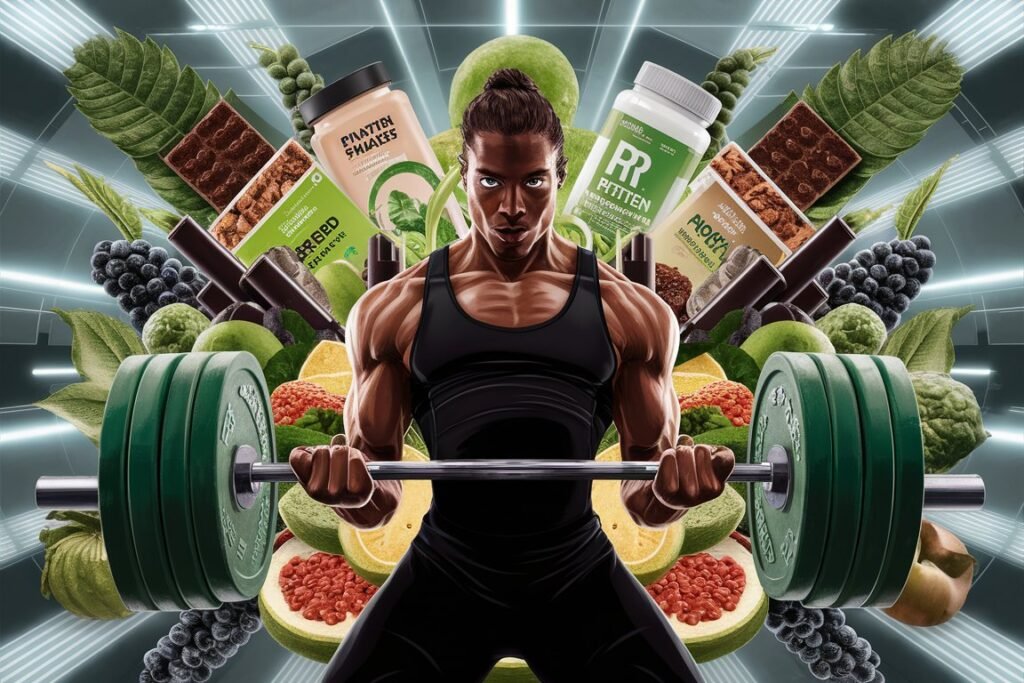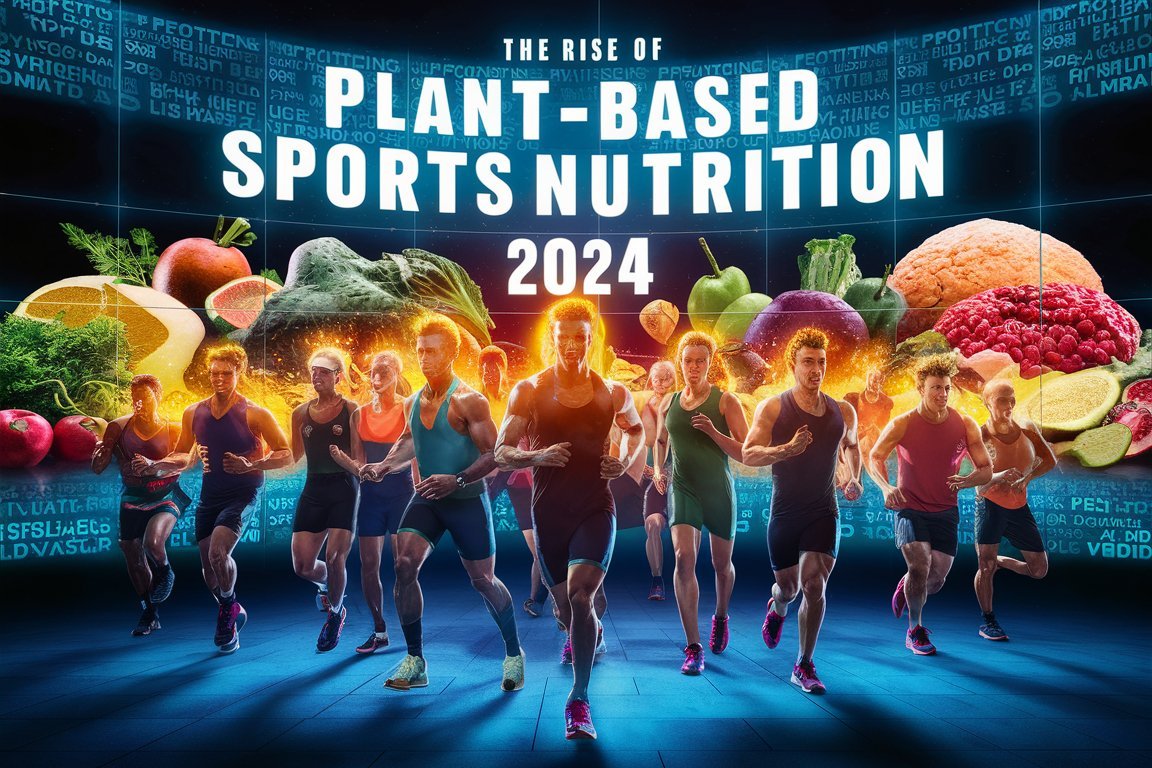The Rise of Plant-Based Sports Nutrition in 2024
Hey there, sports fans and fitness enthusiasts! Today, we’re diving into a topic that’s been taking the athletic world by storm – plant-based sports nutrition! That’s right, more and more athletes are ditching the meat and embracing the power of plants to fuel their bodies and boost their performance.
Now, I know what some of you might be thinking: “But don’t athletes need protein from meat to build strong muscles?” Well, my friends, prepare to have your minds blown, because we’re about to explore the incredible world of plant-based sports nutrition and how it’s shaping the future of athletics in 2024 and beyond!
What Is Plant-Based Sports Nutrition?
First things first, let’s break down what we mean by “plant-based sports nutrition.” Essentially, it’s all about fueling your body with nutrients that come from plants rather than animals. This can include things like:
- Fruits and vegetables
- Whole grains like rice, oats, and quinoa
- Legumes like beans, lentils, and peas
- Nuts and seeds
- Plant-based protein sources like tofu, tempeh, and seitan
The idea is to get all the essential nutrients your body needs to perform at its best, without relying on animal products like meat, dairy, and eggs.
Why Are Athletes Going Plant-Based?
So, why are more and more athletes ditching the traditional steak and eggs in favor of plant-powered meals? There are a few key reasons:
Health Benefits
One of the biggest reasons athletes are embracing plant-based diets is for the incredible health benefits. Studies have shown that plant-based diets can:
- Lower the risk of heart disease, diabetes, and certain types of cancer
- Improve digestion and gut health
- Reduce inflammation in the body
- Support a healthy weight
For athletes, these benefits can translate to better recovery times, reduced risk of injury, and overall improved health and well-being.
Environmental Impact
Another reason athletes are going green with their diets is to reduce their environmental impact. Animal agriculture is a major contributor to greenhouse gas emissions, deforestation, and water pollution. By choosing plant-based foods, athletes can help reduce their carbon footprint and support a more sustainable future.
Ethical Concerns
For some athletes, the decision to go plant-based is rooted in ethical concerns about animal welfare. Many people believe that animals raised for food often suffer in factory farming conditions, and that a plant-based diet is a more compassionate choice.
The Science Behind Plant-Based Sports Nutrition
Okay, so we know why athletes are going plant-based, but what about the science behind it? Can you really get all the nutrients you need to perform at your best without meat? The answer is a resounding yes!
Protein Power
One of the biggest misconceptions about plant-based diets is that they don’t provide enough protein for athletes. But the truth is, there are plenty of plant-based protein sources that can help you build and maintain strong muscles. Some examples include:
- Tofu and tempeh (made from soybeans)
- Seitan (made from wheat gluten)
- Legumes like beans, lentils, and peas
- Nuts and seeds
- Whole grains like quinoa and oats
By combining these protein sources with a variety of fruits, vegetables, and healthy fats, athletes can easily meet their protein needs on a plant-based diet.
Carbohydrate Energy
Carbohydrates are the body’s main source of energy, and they’re especially important for athletes who need quick bursts of power for activities like sprinting or jumping. Plant-based diets are naturally rich in healthy carbohydrates from sources like:
- Fruits like bananas, berries, and oranges
- Starchy vegetables like sweet potatoes and squash
- Whole grains like rice, oats, and quinoa
- Legumes like beans and lentils
By fueling up with these healthy carbs, athletes can maintain steady energy levels throughout their workouts and competitions.

Vitamins and Minerals
Plant-based diets are also packed with essential vitamins and minerals that support overall health and athletic performance. Some key nutrients to focus on include:
- Iron (for oxygen transport and energy production)
- Calcium (for strong bones)
- Vitamin D (for bone health and immune function)
- Vitamin B12 (for energy and nerve function)
- Zinc (for immune function and muscle repair)
While some of these nutrients (like iron and calcium) are more easily absorbed from animal sources, athletes can still get plenty from plant-based foods like leafy greens, nuts and seeds, and fortified plant milks and cereals.
Plant-Based Athletes to Watch in 2024
Still not convinced that plant-based diets can fuel top-level athletic performance? Just take a look at some of the incredible plant-powered athletes making waves in 2024:
Serena Williams
That’s right, the tennis legend herself has been rocking a plant-based diet for years! Williams has said that going vegan has helped her recover faster from tough matches and maintain her incredible speed and power on the court.
Lewis Hamilton
This Formula One racing champion made the switch to a plant-based diet in 2017 and hasn’t looked back. Hamilton has said that going vegan has helped him feel more energized and focused both on and off the track.
Kyrie Irving
The NBA superstar has been a vocal advocate for plant-based diets, even creating his own line of vegan snacks and supplements. Irving has said that going plant-based has helped him feel lighter, faster, and more agile on the court.
Venus Williams
Like her sister Serena, Venus Williams has also embraced a plant-based diet for its health and performance benefits. The seven-time Grand Slam champion has said that going vegan has helped her manage symptoms of an autoimmune disorder and maintain her competitive edge.
The Future of Plant-Based Sports Nutrition
As more and more athletes discover the power of plant-based diets, we can expect to see some exciting developments in the world of sports nutrition in 2024 and beyond.
Personalized Plant-Based Meal Plans
One trend we’re likely to see is a rise in personalized plant-based meal plans for athletes. By working with nutritionists and using high-tech tools like genetic testing and microbiome analysis, athletes will be able to create custom-tailored diets that optimize their health and performance based on their unique needs and goals.
High-Tech Plant-Based Supplements
We can also expect to see a boom in high-tech plant-based supplements designed specifically for athletes. Think plant-based protein powders infused with performance-boosting ingredients like creatine and beta-alanine, or vegan energy gels made with natural sources of caffeine like green tea and guarana.
Plant-Based Performance Restaurants
As plant-based diets become more mainstream, we may see a rise in plant-based performance restaurants catering specifically to athletes. These eateries could offer nutrient-dense, performance-optimized meals and snacks designed to help athletes fuel up and recover faster.
Virtual Plant-Based Nutrition Coaching
With the rise of virtual coaching and telemedicine, we may see more athletes turning to online plant-based nutrition coaching to help them optimize their diets and reach their goals. Virtual coaches could provide personalized meal plans, grocery lists, and ongoing support to help athletes stay on track with their plant-based lifestyles.
Making the Switch to Plant-Based Sports Nutrition
Feeling inspired to give plant-based eating a try? Here are some tips to help you make the switch:
- Start small. You don’t have to go fully vegan overnight. Try incorporating more plant-based meals and snacks into your diet gradually, and see how your body responds.
- Focus on whole foods. Aim to get most of your nutrients from minimally processed, whole plant foods like fruits, vegetables, whole grains, legumes, nuts, and seeds.
- Experiment with new foods and recipes. There are so many delicious plant-based foods and recipes out there! Try new things and find what works best for you.
- Don’t be afraid to supplement. While a well-planned plant-based diet can provide all the nutrients you need, some athletes may benefit from supplements like vitamin B12, vitamin D, and omega-3 fatty acids.
- Listen to your body. Pay attention to how different foods make you feel, and adjust your diet accordingly. Everyone’s needs are different, so find what works best for you!
The Bottom Line
Plant-based sports nutrition is here to stay, and it’s only going to get bigger and better in the years to come. By fueling their bodies with nutrient-dense, whole plant foods, athletes of all levels can improve their health, performance, and overall well-being.
So whether you’re a weekend warrior or a professional athlete












Leave a Reply